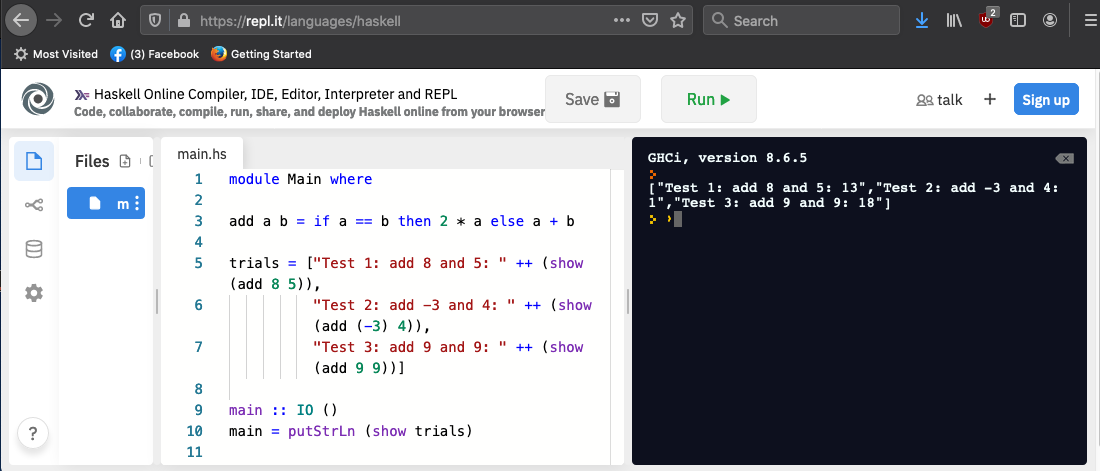Running Haskell online (at Repl.it)
This is an alterantive to running GHCI
This avoids having to install GHCI, but it's also slower (for very large problems!) and requires you to revise how you write the code a bit.
- Visit
https://repl.it/languages/haskell - Enter the following code in
main.hs:module Main where add a b = if a == b then 2 * a else a + b trials = ["Test 1: add 8 and 5: " ++ (show (add 8 5)), "Test 2: add -3 and 4: " ++ (show (add (-3) 4)), "Test 3: add 9 and 9: " ++ (show (add 9 9))] main :: IO () main = putStrLn (show trials) - Click on the
Run >button and confirm you get output like["Test 1: add 8 and 5: 13","Test 2: add -3 and 4: 1","Test 3: add 9 and 9: 18"] - Replace the definition of
addby your own functions. - Rewrite the
trialsvariable to execute your code against various cases. - Run your code and debug as necessary.
f x = x * x
main = putStrLn(show (f 3, f (-1), f 1.2))
Just in case you're having problems, here's what I see:
Notes
- The above code defines two functions,
addandmain, and then setstrailsto a list of test runs. Theshowfunction converts values into strings (so the result can be added to a string). There are other ways to run multiple test cases, but this one uses no new constructs. - To use repl.it, you must define a
mainwith no parameters to run the code. The::IO ()code (above) just means thatmainis a function that does output. Repl.it will executemainto do the work. - You can copy your code from the web page to a file in order to save it. But a better solution might be to set up an account (perhaps using a gmail or similar account) so the files can be saved in your web account. This will start a simple IDE for development.
